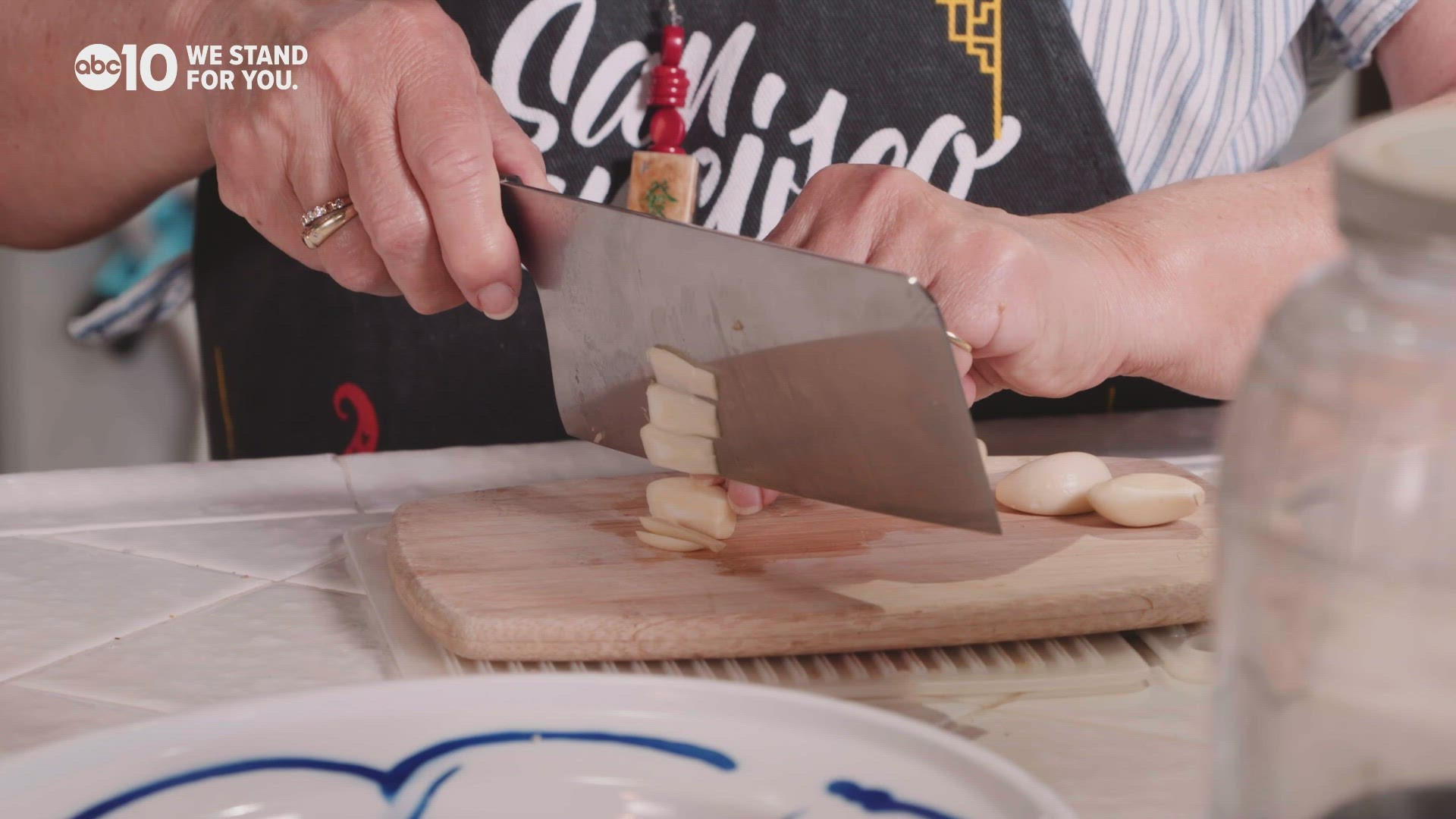SACRAMENTO, Calif. — Every week, Mollie Chow and Elizabeth Xiu Wong meet in the kitchen to cook up a meal to be shared over conversation. It's a tradition that started during the pandemic and continues to strengthen their friendship.
"My family's all in San Francisco and when we had lockdown, I didn't have anywhere to go or anyone to talk to... so we became COVID buddies," said Wong, smiling at Chow.
She refers to Chow endearingly as Auntie Mollie, a sign of respect for elders.
They cook a wide range of dishes, but their specialty lies in Chinese cuisine. The first meal they ever cooked together was Jai — a traditional vegetarian Chinese dish usually eaten on the first day of the Lunar New Year with the hope of bringing luck. The dish is labor intensive, and Wong and Chow's recipe involves up to 13 different key ingredients such as water chestnuts, tofu and lotus root to name a few.
GET MORE RACE & CULTURE FROM ABC10:
►Explore the Race & Culture home page
►Watch Race & Culture videos on YouTube
►Subscribe to the Race and Culture newsletter
"It's fun cooking. I enjoy making Jai," said Chow.
Both Wong and Chow try to make the dish every year because of their love for it. Wong says it's become more difficult to preserve the recipe and efforts to make it have started to disappear with each generation because it's so labor intensive, which is why they decided to submit their recipe to the ACC Community Cookbook.
Because all families have their own stories and recipes of how their dish came to be, often handed down through generations with no official way to document the recipe, this cookbook will be a place for those families to share it with the community.
The book will include soups, noodles and dumplings, just to name a few. The relationships and stories behind each dish is what David Soohoo says is the reason why he wanted to be a part in helping to put the cookbook together with ACC Senior Services.
"Every ethnic group should do a community cookbook because that is like sharing some of the best parts of the culture," said Soohoo.
Community cookbooks were first created by churches and community organizations as a way to raise funds. The first known cookbooks date back to as early as the mid 1800s. Now, they continue to provide a snapshot and insight into aspects of one's culture and public history at the time. The ingredients and methods used in a particular recipe, for example, could indicate the social and cultural impacts of immigration or urbanization.
As a chef himself, Soohoo says when he was younger, he could feel the power of food and how it would bring people together.
"I'm a people cook. They're practitioners of culture. So, I can remember even as a child going in school, other kids loved me because I would bring an egg roll to school. We would trade food," he said.
With the book titled 'The Foods We Share: The Stories We Tell,' Soohoo is hoping it'll bring together not only the AAPI communities, but allow people to experience and learn something new. On top of that, the book is meant to preserve family recipes to keep the tradition alive.
"One book, you can make Vietnamese sandwiches. You can make rice noodle Pad Thai from the Thai. You can make the potsticker dumplings and get it on one cookbook. The classic Chow Meins and a lot of actually great recipes that reflect the traditional Chinese medicine or culture," said Soohoo.
All of this with a goal of bringing together community, just like the strong bond between Wong and Chow.
ACC Senior Services plans to publish the cookbook in September. They are accepting recipe submissions until May 15. If you have a recipe of your own to share, you can submit it here.
We want to hear from you!
The Race and Culture team's mission is to serve our diverse communities through authentic representation, community engagement and equitable reporting.
Accomplishing our goals of inclusive reporting requires hearing from you. Is there a person or place that you want us to highlight. Email us at raceandculture@abc10.com or fill out the form below.
Watch more: The history of Mikami Vineyards in Lodi

